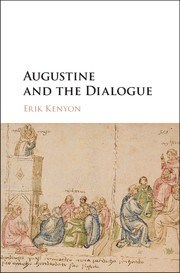Alexander Earl at The Marginalia Review of Books:
 So what is to be done? What might seem like an esoteric crisis in Augustinian scholarship suddenly reflects a crisis about how we think, and how that thinking might give rise to a whole host of other predicaments. In which case, perhaps the resolution of one can aid us in resolving the other. In Augustine’s case, Kenyon argues that we should approach him in a holistic way and cease strip-mining his work for this or that argument or literary trope. We should especially not get bogged down in attempts to historically recreate Augustine’s psyche, but turn to the “overarching arguments and rhetorical strategy instead of individual passages” and “prefer interpretations that make sense of a text as a whole.” What we find, Kenyon avers, are “works centrally concerned with the practice of inquiry. When it comes to finding guidance, the dialogues look foremost to the act of inquiry itself: the fact that we can inquire at all tells us various things about ourselves.” The direction has shifted: what might it look like to view Augustine’s dialogues, and the nature of dialoguing in general, in terms of pedagogy and not in terms of content, as journeys of self-discovery instead of didactic treatises?
So what is to be done? What might seem like an esoteric crisis in Augustinian scholarship suddenly reflects a crisis about how we think, and how that thinking might give rise to a whole host of other predicaments. In which case, perhaps the resolution of one can aid us in resolving the other. In Augustine’s case, Kenyon argues that we should approach him in a holistic way and cease strip-mining his work for this or that argument or literary trope. We should especially not get bogged down in attempts to historically recreate Augustine’s psyche, but turn to the “overarching arguments and rhetorical strategy instead of individual passages” and “prefer interpretations that make sense of a text as a whole.” What we find, Kenyon avers, are “works centrally concerned with the practice of inquiry. When it comes to finding guidance, the dialogues look foremost to the act of inquiry itself: the fact that we can inquire at all tells us various things about ourselves.” The direction has shifted: what might it look like to view Augustine’s dialogues, and the nature of dialoguing in general, in terms of pedagogy and not in terms of content, as journeys of self-discovery instead of didactic treatises?
more here.
